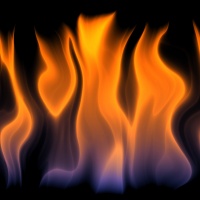Kindling a Fire: Difference between revisions
No edit summary |
No edit summary |
||
| (6 intermediate revisions by the same user not shown) | |||
| Line 1: | Line 1: | ||
{{Okay}} | {{Okay}} | ||
[[Image:Fire.jpg|200px|right]] | [[Image:Fire.jpg|200px|right]] | ||
One of the 39 Melachos of Shabbos is lighting a fire or adding fuel to an already existing flame. A closely related issue is [[Electricity on Shabbat]]. | One of the 39 Melachos of Shabbos is lighting a fire or adding fuel to an already existing flame. A closely related issue is [[Electricity on Shabbat]]. | ||
==Definition== | ==Definition== | ||
# The Melacha of [[Mavir]] includes kindling a fire, adding fuel to a fire, or spreading a fire.<ref>39 Melachos (Rabbi Ribiat, vol 4, p. 1197). See Gemara Krisos 20a, Beitzah 22a, Shabbos 120b about opening a door for the wind to enhance a torch or flame.</ref> | # The Melacha of [[Mavir]] includes kindling a fire, adding fuel to a fire, or spreading a fire.<ref>39 Melachos (Rabbi Ribiat, vol 4, p. 1197). See Gemara Krisos 20a, Beitzah 22a, Shabbos 120b about opening a door for the wind to enhance a torch or flame.</ref> | ||
| Line 9: | Line 9: | ||
==Practical Examples== | ==Practical Examples== | ||
# It is absolutely forbidden to strike a match or use a cigarette lighter on [[Shabbat]]. <ref>39 Melachos (Rabbi Ribiat, vol 4, p. 1197)</ref># It is forbidden to add oil to a Chanukia which is lit. <ref>39 Melachos (Rabbi Ribiat, vol 4, p. 1197)</ref> | # It is absolutely forbidden to strike a match or use a cigarette lighter on [[Shabbat]].<ref>39 Melachos (Rabbi Ribiat, vol 4, p. 1197)</ref># It is forbidden to add oil to a Chanukia which is lit.<ref>39 Melachos (Rabbi Ribiat, vol 4, p. 1197)</ref> | ||
===Electricity=== | ===Electricity=== | ||
see [[Electricity on Shabbat]] | see [[Electricity on Shabbat]] | ||
| Line 23: | Line 23: | ||
<references/> | <references/> | ||
[[Category:Shabbat]] | [[Category:Shabbat]] | ||
{{Shabbat Table}} | |||
Latest revision as of 17:04, 13 July 2023
| This article is okay. |
One of the 39 Melachos of Shabbos is lighting a fire or adding fuel to an already existing flame. A closely related issue is Electricity on Shabbat.
Definition
- The Melacha of Mavir includes kindling a fire, adding fuel to a fire, or spreading a fire.[1]
- One is only obligated for Mavir if it is done in a productive fashion, even though it is essentially a destructive act of the item being burnt. The Gemara provides the case of burning wood for the produced ash, but the Poskim extend the cases of obligation to any productive use of the fire including using it for light, heat, or other purposes.[2]
In the Mishkan
Practical Examples
- It is absolutely forbidden to strike a match or use a cigarette lighter on Shabbat.[5]# It is forbidden to add oil to a Chanukia which is lit.[6]
Electricity
- Mavir is the only melacha mentioned explicitly in Torah.[7] Practically, this has no difference for the nature of this specific Melacha, but rather teaches laws about malachos in general.[8] However, because this pasuk is also related to the killings of beis din on Shabbos, we consequently learn that Mavir is violated in the process of the halachik punishment of sreifa. During sreifa, the perpetrator is not actually burnt, and the violation of mavir actually occurs by lighting the fire under the lead to be poured down the perpetrators throat.[9] While lead melts under intense heats, other metals glow and become very hot. It is a machlokes Rishonim of you are chayav for Mavir in such a situation.[10] This is very relevant practically as in electrical devices, specifically incandescent light bulbs, pieces of metal become very hot and glow in this fashion.
There is a debate in the Achronim about the essence of mavir. The Shulchan Aruch HaRav explains that the chiyuv extends from having the fire, not the burning or destruction of the item lit.[11] The Avnei Nezer Siman 138 argues that the chiyuv stems from the combustion of the burnt item, which explains the necessity of burning wood for the ash to be chayav. A possible Nafka Mina might be by incandescent light bulbs, if the metal strips burn but are not consumed. Rabbi Ribiat argues that even still you may violate the Torah prohibition of Mavir because the metal strip does eventually break because of use, which is no less than its immediate consumption.[12] In any event, almost all poskim agree that electricity and light bulbs are still prohibited under other Torah or Rabbinic restrictions.
Related Pages
Links
- The Melachot of Kindling and Extinguishing a Fire by Rabbi Josh Flug
Sources
- ↑ 39 Melachos (Rabbi Ribiat, vol 4, p. 1197). See Gemara Krisos 20a, Beitzah 22a, Shabbos 120b about opening a door for the wind to enhance a torch or flame.
- ↑ See Gemara Shabbos 106a, Rashi, Tosfos and other Rishonim there. Rambam paskins like R. Yehudah that even mavir requires a tikkun, but includes other tikkunim in 12:1.
- ↑ See Mishna 73a and Rashi there, s.v. Mechabeh UMavir.
- ↑ See Tosfos 94a s.v. R. Shimon, 39 Melachos, Rabbi Ribiat page 1195, footnote 1. See Rambam 12:1 who considers this a Toldah of Mavir, but not an Av.
- ↑ 39 Melachos (Rabbi Ribiat, vol 4, p. 1197)
- ↑ 39 Melachos (Rabbi Ribiat, vol 4, p. 1197)
- ↑ See Shmos 35
- ↑ See Gemara Shabbos
- ↑ See Sanhedrin 51a which teaches that the sedukim killed by burning the perpetrator. See Maor Hakatan 106a who maintains the violation of Mavir is the “burning” of the perpetrator even in Rabbinic sreifa.
- ↑ See Rambam 12:2 about extinguishing a “burning” piece of metal and Raavad there.
- ↑ See Kuntras Acharon, Siman 495. Based on Gemara in Krisos 20a.
- ↑ 39 Melachos (v. 4, p. 1198)
